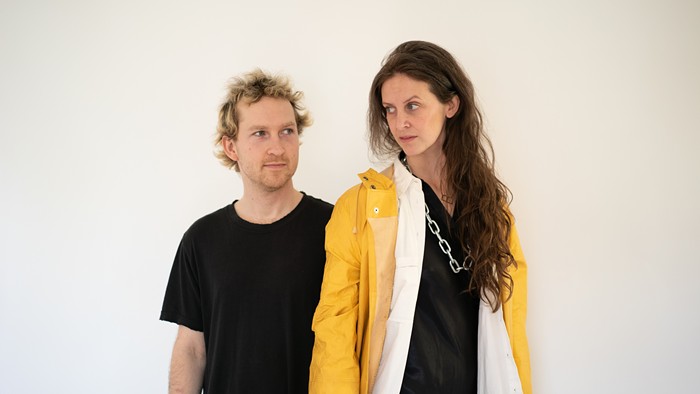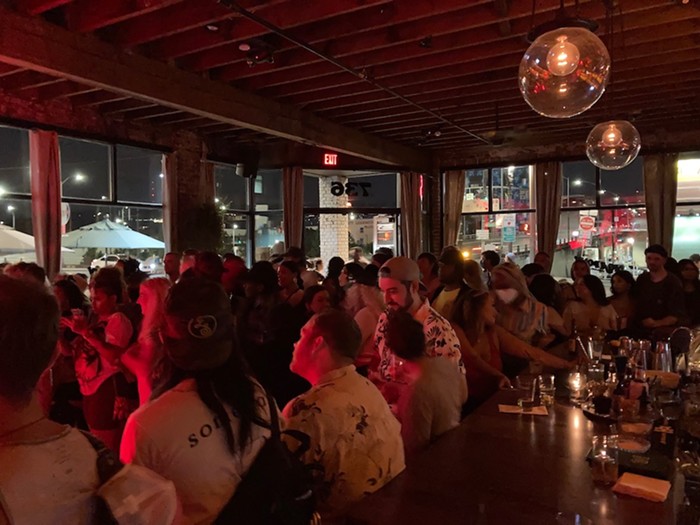IN MAY OF 2009, Omar Souleyman, in his London debut, cautiously walked onto the stage at Tufnell Park's Dome theater to a capacity crowd. In a venue in back of a North London Irish boozer that normally hosts rock gigs and club nights, the appearance of a mirror-shaded Syrian singer dressed in a full-length djellaba robe on his first-ever tour outside of his homeland struck a curious figure.
The crowd stood attentively watching Souleyman as he began to sing a brooding mawal lament not unlike the sound of a muezzin's call to prayer, but as soon as breakneck drum-machine rhythms blasted out from a keyboard and an unassuming seated electric saz player began frantic high-energy trancelike melodies, the dance floor erupted into a bouncing mass. These scenes were repeated again, weeks later, when Souleyman and his band performed at Barcelona's cutting-edge Sónar electronic music festival to a rapturous dance crowd. A return visit to London in 2010 saw stage diving and a mosh pit, as Souleyman looked on unfazed at an energized crowd reaction he was now becoming acquainted with in Europe.
Walk through the stalls of souks in Marrakesh, Amman, or other cities around the Arabic-speaking world, and you'll run into music kiosks with stacks of tapes whose labels seem like undecipherable code to non-Arabic speakers. It's in shops like these that artists are able to circulate their music. While their days may be numbered with the global proliferation of the internet, you can still find these kiosks, many of which remain faithful to the cassette format. In these shops is where you may find one of Souleyman's 500 albums.
Souleyman performs a popular Levantine folk music called dabke. His music career took off around 1994 as a wedding performer in his native Syria, and in a few years, after gaining popularity in his home country, he made an impact in the region from the Arabian Peninsula to the Gulf States. He now describes himself as the "number one" pop star in his homeland.
Dabke music is meant for special occasions like weddings or other community and family celebrations. The dance is striking, with participants lining up shoulder-to-shoulder and shaking in unison. It is popular music in the truest sense, often looked down upon by the urban elite in cosmopolitan centers like Damascus. Souleyman's music derives its own cosmopolitan makeup from the Levant's diverse ethnic populations, drawing folk influences from Turkish, Kurdish, Assyrian, Iraqi, and Syrian folk traditions.
With the help of Sublime Frequencies, Souleyman has in fact made an impact outside the Arabic-speaking world. In 2006, the label started releasing compilations of hits from Souleyman's prolific 17-year career. On a trip to Syria in 1998, Mark Gergis—of the acclaimed and sometimes infamous Seattle based D.I.Y. punk-ethos world music label—discovered Souleyman's music. In 2007, Sublime Frequencies released Highway to Hassake, a compilation of Souleyman's folk pop recordings culled from cassettes of live wedding performances sold in kiosks.
Yet all this critical acclaim in the West has not come without its skeptics. Critics have spoken up about Orientalism in some of the elements of Souleyman's routine. Whether or not this is true, it's clear that now with three albums on Sublime Frequencies and collaborations both confirmed (Björk) and rumored (Damon Albarn), Souleyman's star in the Western mainstream pop stratosphere has only begun to rise.



















